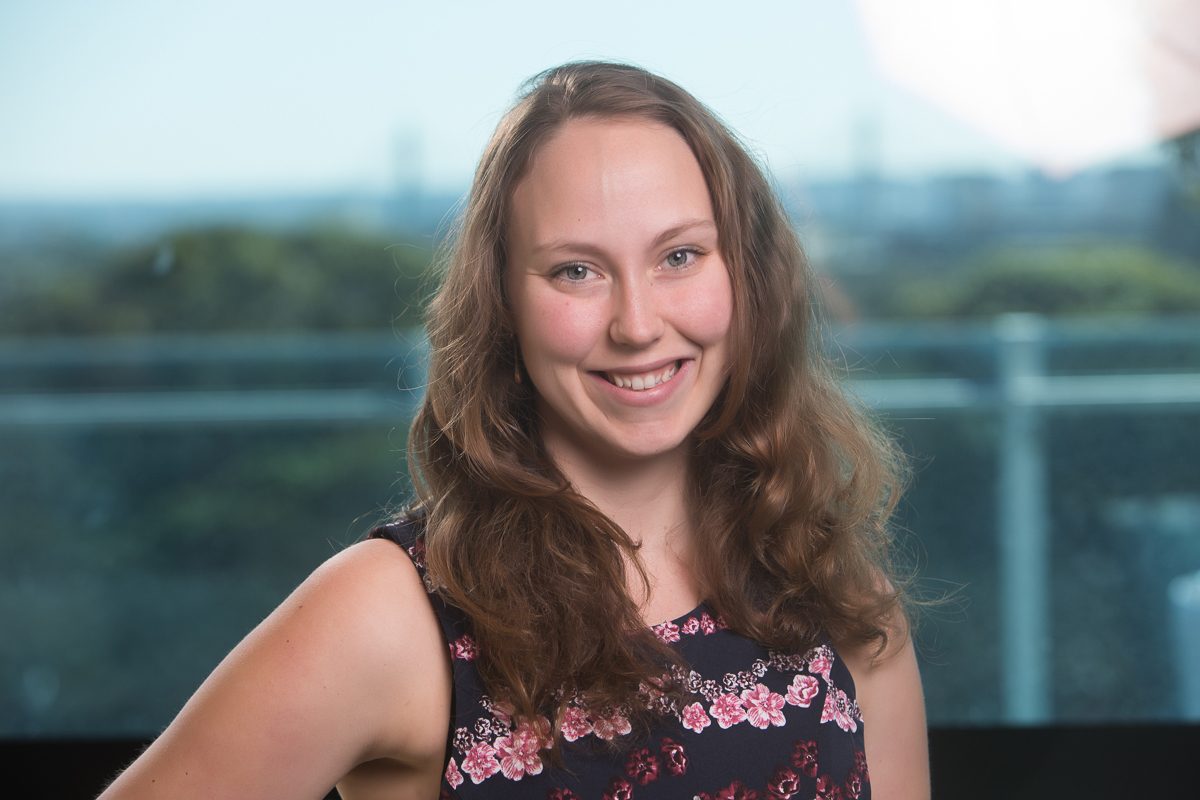
Meet Emalie Sparks, PhD student and Research Dietitian
Emalie Sparks is a research dietitian at The George Institute for Global Health. Her research focuses on preventing chronic diseases at the population level through nutrition interventions, such as salt reduction and food policy strategies.
She is also a PhD candidate, and her research is about how nutrition policies in institutions (e.g. schools, hospitals) can facilitate healthier eating through food procurement policies and education programs.
Q: How long have you been working at The George Institute?
I have been working at The George Institute for Global Health since January 2018, and I commenced my PhD in 2019.
Q: What attracted you to working here?
The George Institute’s reputation for quality research and its mission to improve the health of millions worldwide, were two things that attracted me to working here.
My background is in nutrition and dietetics, and the work being conducted by The George to improve population health through salt reduction interventions and food policy strategies was work I wanted to contribute to and be a part of.
Q: What is your area of research and how does it help people lead healthier lives?
My main area of research, and the topic of my PhD, is institutional nutrition policies and their impact on dietary intake. Globally, unhealthy diets are the leading mortality risk factor. Creating healthy food environments in settings, such as schools, workplaces and health facilities, can facilitate healthier eating through food procurement policies and education programs.
My work for the Public Health Advocacy and Policy Impact team and the World Health Organisation Collaborating Centre on Population Salt Reduction focuses on supporting salt reduction strategies in Australia and globally. High salt intakes increase blood pressure and the risk of cardiovascular disease. Reducing population salt intake will save millions of lives per year. You can read more about the work of the collaborating centre here.
Q: Tell us about your recent or upcoming conferences. What were you or will you be doing there?
In February 2019, I presented at the Prince Mahidol Award Conference in Bangkok, Thailand. The theme was ‘The Political Economy of NCDs: A Whole of Society Approach’. I presented on recent research led by Rebecca Dodd at The George Institute, on ‘The politics of food in the Pacific: coherence and tension in regional policies on the food environment and non-communicable diseases’.
In July 2019, I will be presenting at the Food Governance Conference, hosted by The University of Sydney Law School, on ‘Sugar taxes: Where are we at globally?’. We are conducting a review of the large number of countries that are implementing sugar taxes and analysing if they align with current recommendations and measuring their impact.
Q: In your opinion, what is the biggest challenge today when it comes to global health?
There are so many challenges when it comes to global health. Relating to my work, one of the biggest challenges is improving the food environment to help people to make healthier food choices and improve overall diet quality. Unhealthy diets are the leading risk factor for deaths globally. We are consuming diets low in whole grains, fruits, vegetables, nuts and seeds, and consuming diets high in sodium, sugar and unhealthy fats. We live in an environment where processed foods are inexpensive, readily available and marketed as a convenient food choice. Changing the food environment, and improving nutrition knowledge, will help populations to be able to make healthier choices and improve their diet.
Q: What motivates you most in your work?
Knowing my work is improving people’s diets and health is extremely motivating. Working with countries to build their capacity to improve their population’s nutrition is also a motivation.
Q: How did your career in health get started?
I completed a Bachelor of Science, majoring in Physiology, and then a Master of Nutrition and Dietetics from the University of Sydney. During my Master’s degree, I was exposed to a wide range of career options for dietitians. I realised early on that I wanted to improve the health of populations and communities, rather than individuals in a clinical setting. One of my placements at university was at The George Institute for Global Health with the Advocacy and Policy Impact team. After I finished my studies, I began working at The George Institute in this team, which is where I am still currently based.

